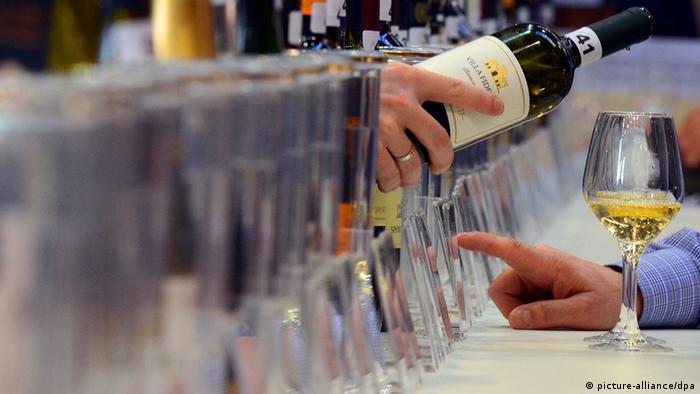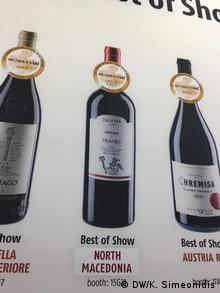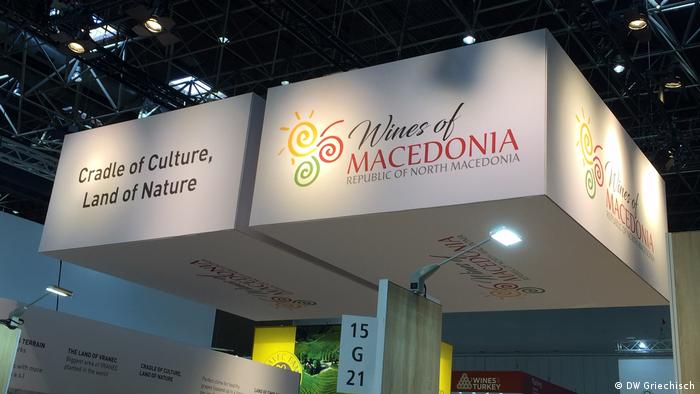In spite of the termination of the decade-long name dispute between Greece and the North of Macedonia, remain open questions. Who is allowed to sell such as the “Macedonian wine”? The Greeks, the Northern Macedonians, even the Bulgarians?

Key issues in the Treaty of Prespa, which has only been a couple of weeks ago in force, are nevertheless, not sufficiently or not at all clarified. Regarding the use of trademarks and trademarks of the Treaty provides only that both sides should strive, within the framework of a “sincere Dialogue” to come to an amicable solution. In this case, a group of international experts to help and within the next three years to deliver results.
There are, however, inevitable new tensions. A taste of the international wine fair Prowein in Düsseldorf (17 delivered.-19. March). The participation of the “Association Wines of Macedonia (WOM)”, which represents the Northern Macedonian wine producers, brought the Greek exhibitors at the barricades. These complained in advance of the trade fair Prowein, and requested that the Exhibitor holds to the Treaty of Prespa and the relevant agreements.
The Patent In Question
“What we want is that the wines from the North of Macedonia are called so, and that our wines hot Macedonian wines, as it has also been patented for 20 years, at EU level,” says Stelios Boutaris, one of the most famous wine producers in Greece, son of the founder of Boutaris Wines and mayor of Thessaloniki Yannis Boutaris. In fact, the “Macedonian wine” in the EU registered product with a so-called “Protected Geographical indication”, such as “bratwurst”, the “Thüringer Rust”. This means that only wines from the Region of Macedonia in Greece, and even from certain varieties may also be called so.

Name labels print
The “Association Wines of Macedonia”, however, has a different Interpretation. “We sell for decades, wines from Macedonia and hope to see this in 10 and 20 years ago continues to make”. A representative of the WMO, who wanted to remain anonymous, said that the denomination “Wines of Macedonia” should be used by all, i.e., by the Greeks, the Northern Macedonians, and even from the manufacturers in Bulgaria, where is also a part of ancient Macedonia. How would but in this case, the Consumer of the different products really differ? “It’s very simple: On the label the country of origin is always, in this case, the product of North Macedonia or Product of Greece”. You could take this as an example to the German, the French and the Luxembourgers, proposes a North-Macedonian wine producer. “The Moselle river, crossed all three countries and, therefore, all the wines of the Mosel are not allowed to sell”.
Registered and protected trademark
These and other arguments are determined to come to the table when the negotiations between the two sides will start soon, as the Treaty of Prespa. This will not, however, be easily determined. Theoretically, the Greek side has the better cards. You can refer to the fact that the name “Macedonian wines” for the past two decades, a registered and protected trademark. Furthermore, Greek manufacturers could not threaten the North of Macedonia, with a Blockade of the accession to the EU, if the country will succumb to.

Policy at the wine stand: Greeks and Northern Macedonians want to solve the dispute in negotiations
The small Balkan country, but will not give up so quickly. There is no comparable jurisdiction has table Argument, it could, however, relate to purely Economic. In the last few decades, the North of Macedonia has gained a strong market Position and secured. “If you ask the Germans after wine from Macedonia, most of the show on today’s Northern Macedonia, and not Greece”, to give themselves a Greek winemaker. This was the result of an export-oriented strategy would not have followed the Greeks with the same Elan.
In spite of the different positions and the expected voltages, the wine producers, however, are on both sides of the confident. There must be found a solution because this is of benefit to both sides, the plea of both the Greek and the Northern Macedonian wine producers compared to the DW.

